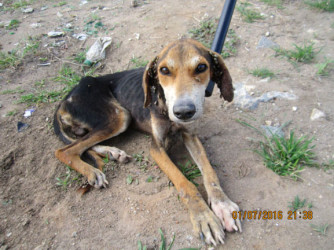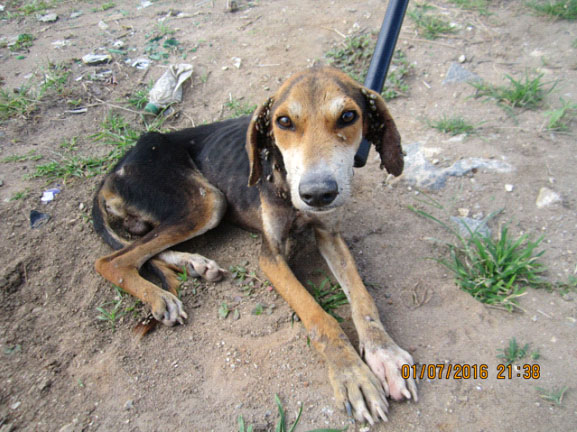Dear Editor,
On Jan 7, just after 5pm, a friend and I were walking on the seawall. We were enjoying the beauty of the moment, unaware of the sadness that awaited us. On our way back to the car dusk was falling when my friend, Sunita pointed to a dog lying on the sand. Editor, I always take donated food with me for the strays so I jumped off the wall and approached the dog. To my surprise he struggled to get up and started barking. The fear in his eyes saddened me. I lay the food next to him and walked away.
Sunita asked if I saw the fleas and ticks that covered him.

He had eaten the food and did not bark when I approached. It was then I became aware of the masses of ticks and fleas covering his very thin body. The poor animal was covered from head to toe. Ticks and fleas were in his ears, on his eyelids, on his back and stomach, between his toes and under his tail; he was literally being eaten alive. It was one of the sadness sights I have seen. At least the look of fear was gone from his eyes. I put him in my dog kennel and took him to the shelter where he was euthanized by injection. I paid the euthanization fee.
Editor, it seems there is no end in sight for the suffering of domestic and wild animals living in Georgetown. It looks like our voiceless friends will have no reason to celebrate Guyana’s 50th Anniversary.
Just last Saturday, a friend and I were returning to Georgetown from the highway. We saw a sakiwinki monkey for sale in a tiny cage.
We stopped to investigate and found the monkey in a cage so small it could not move and it had no water. The trader wanted $6,000 but we paid $2,000 after giving the man a strong lecture on why wild animals should remain in the wild. We took the fragile sakiwinki to the Guyana Zoo. He was put in quarantine and died two days later. I retrieved the body and took it to a private vet for a post mortem.
The vet said the sakiwinki died from multiple causes (some induced from mistreatment by humans) with the main culprit being threadworms.
Editor, wouldn’t it be better for humans to leave these beautiful creatures in the wild where their beauty and intelligence can be enjoyed by all?
That innocent little sakiwinki would probably still be alive if he had been left with his family in the rainforest.
The animal trader responsible for its death earned a measly $2,000. An eco-tourist would have paid far more than that just to take his picture playing in the treetops of our wonderful rainforest with his family.
I do believe the time has come for the many agencies, organizations and private citizens who care about animals to step up and pressure government to do more to protect our wildlife and domesticated animals. No one should have the right to hunt, trap, or cage animals of any kind unless they have authorization and the requisite conditions to keep them in humane conditions.
Yours faithfully,
Syeada Manbodh






